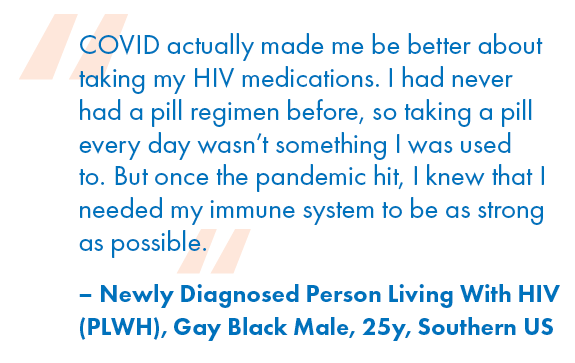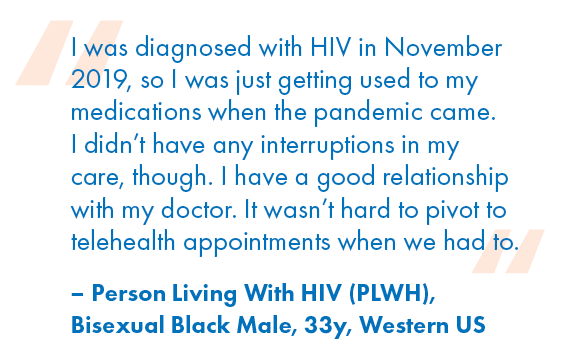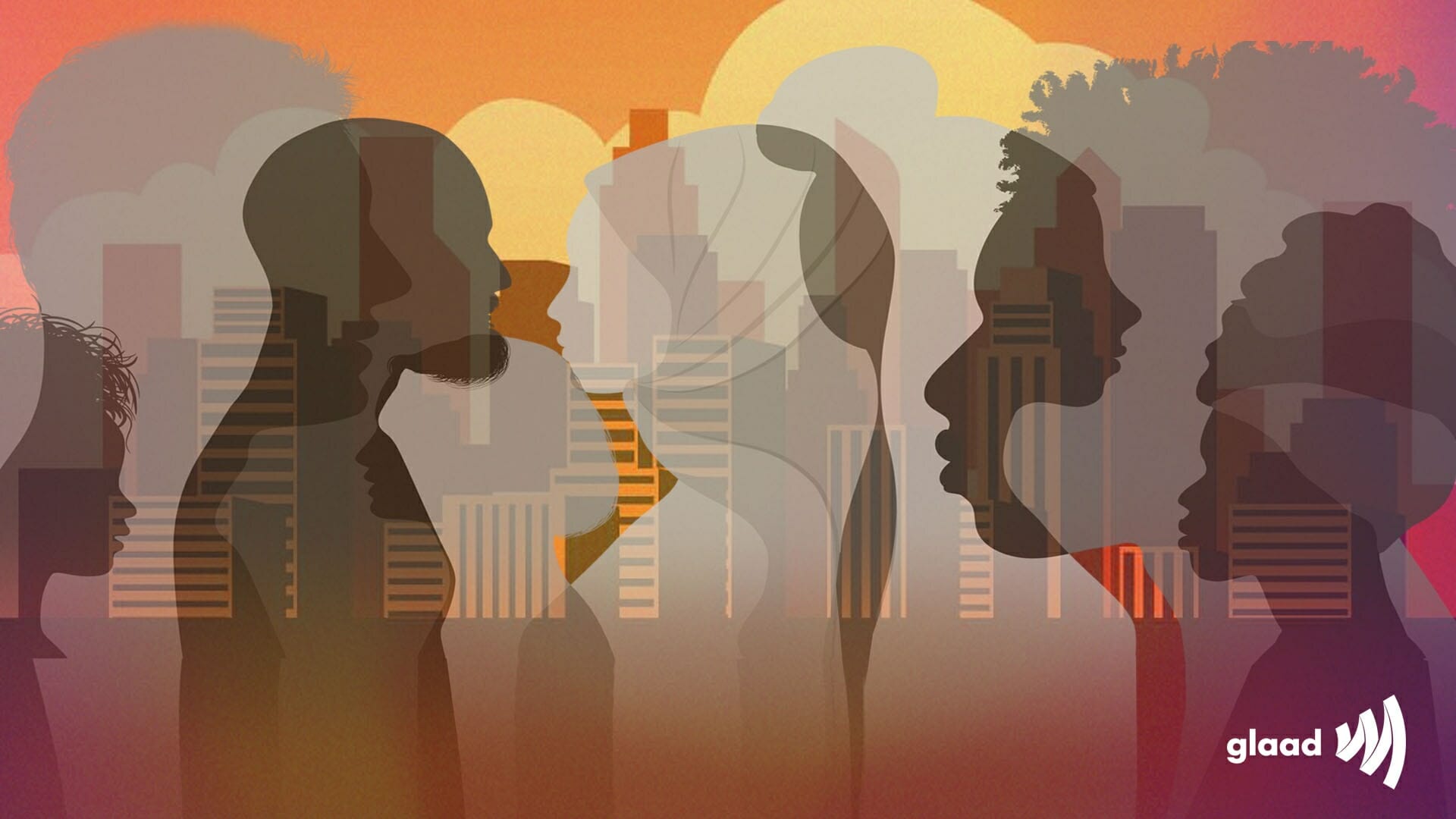Engagement in comprehensive HIV care services including adherence to antiretroviral medications, doctor visits, psychosocial services, and support groups is necessary to living and thriving with HIV. The COVID-19 pandemic has upended the ability for PLWH to adequately engage with these vital services. There is evidence about PLWH being more vulnerable to getting COVID-19. A systematic review examining the epidemiology of COVID-19 rates and mortality among PLWH found that PLWH had significantly higher risk of getting COVID-19 and mortality from COVID-19 compared to HIV-negative individuals [29]. Given that risk for severe COVID-19 (hospitalization, intensive care, ventilation, and death) is higher among people who are immunocompromised, continued engagement in HIV care services among PLWH is important amidst this pandemic.
The pandemic surfaced many new or previously unacknowledged issues that required social or emotional support, including healthcare and wellness needs. In our interviews, many clients reported a heightened need for mental health services and support, particularly in-person, but lacked the resources (e.g. time, money, knowledge) to do so. The overall uncertainty of information about COVID-19 magnified health challenges, and caused increased anxiety and depression compounded by the isolation of working from home and the elimination of in-person social interactions. Some clients we spoke to found it difficult to establish relationships with new mental healthcare providers virtually, and even those that were already connected to support (e.g. therapists, 12-step programs) prior to March 2020 experienced an abrupt shift to virtual, which did not provide the same overall benefit as in-person.

Lockdown and stay-at-home orders significantly affected access to HIV care services. A study of PLWH in an urban HIV clinic in the southeastern U.S. found a decrease in the number of outpatient medical encounters and new patient appointments but an increase in mental health encounters during the initial wave of the pandemic [30]. In our interviews, CBO staff mentioned that in-person support groups were difficult to replicate virtually, heightening the isolation and lack of support felt by clients.
Overall, focusing on funding and support for mental health services for PLWH and affected communities is critical. The compounding effect that the pandemic has had on mental health for PLWH and affected communities has created a need for more resources for CBOs and options to connect people to life-saving outreach and support. Similar to HIV prevention services, there was an almost immediate pivot to telemedicine for the delivery of HIV care services [31]. While the transition from in-person to telemedicine delivery model for HIV care was found to be highly acceptable among PLWH [32- 34], there were still concerns about lack of physical examination by a healthcare provider, privacy, technical issues, digital literacy [32, 33, 35]. In our qualitative interviews we found that people living with HIV and affected communities that entered the pandemic with established and trusted health care provider (HCP) relationships were better positioned to weather ensuing changes the pandemic caused. Clients we spoke to largely showed more resilience if they had strong sources of support from their medical team in place prior to March 2020, and shifting to virtual medicine may have been easier for clients who already had strong connections with their provider.

On the other hand, those without established supportive medical care relationships expressed a destabilization of support, exacerbated by having to engage in a virtual environment.













